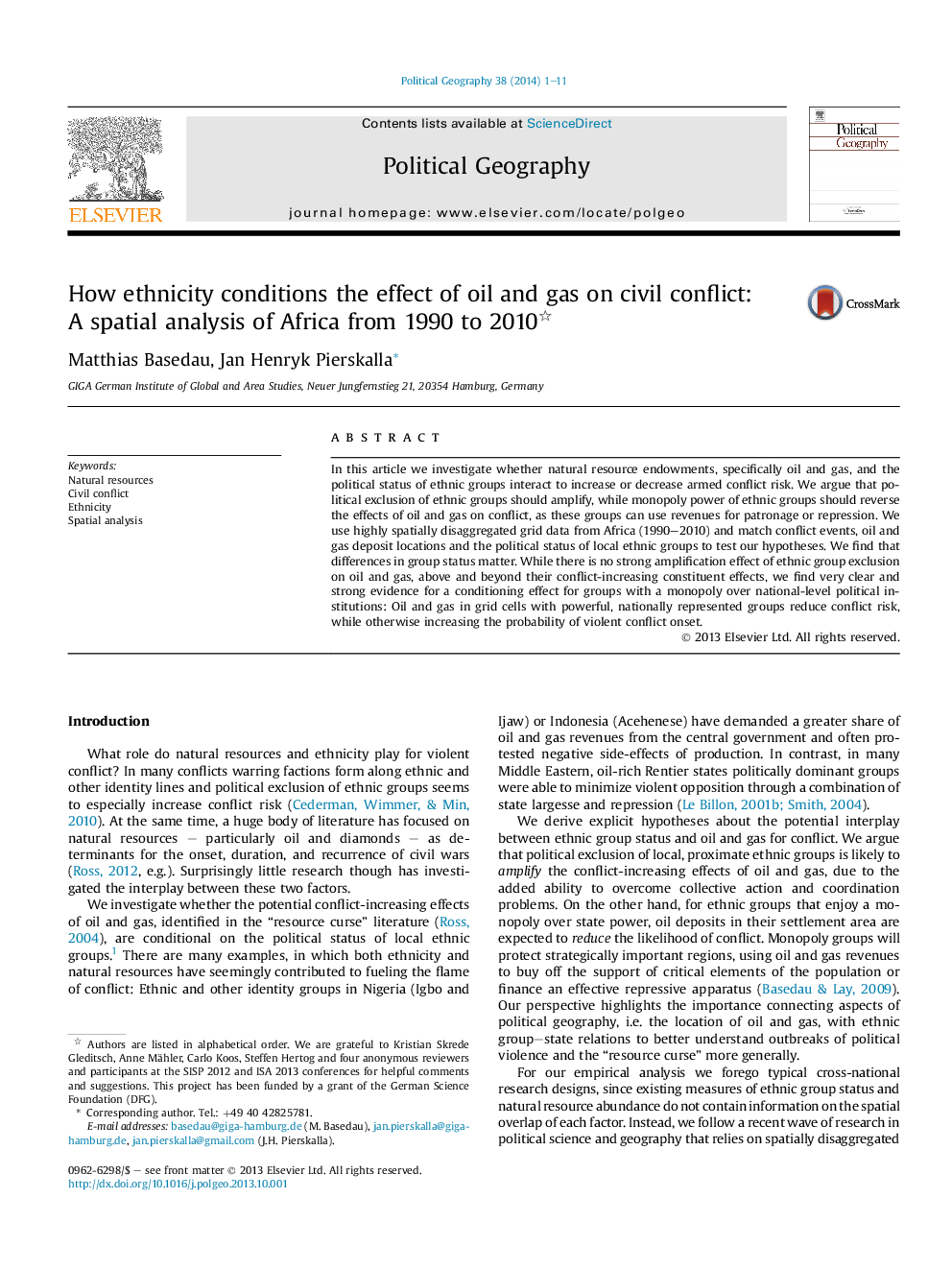| Article ID | Journal | Published Year | Pages | File Type |
|---|---|---|---|---|
| 1061918 | Political Geography | 2014 | 11 Pages |
:•The effect of oil on conflict is argued to be conditional on the political status of ethnic groups.•Spatial analysis of conflict events in African grid cells is used to test the argument.•Political exclusion of ethnic groups does not amplify the effect of oil and gas on conflict.•Monopoly over state institutions reverses the normally conflict-increasing effect of oil and gas.
In this article we investigate whether natural resource endowments, specifically oil and gas, and the political status of ethnic groups interact to increase or decrease armed conflict risk. We argue that political exclusion of ethnic groups should amplify, while monopoly power of ethnic groups should reverse the effects of oil and gas on conflict, as these groups can use revenues for patronage or repression. We use highly spatially disaggregated grid data from Africa (1990–2010) and match conflict events, oil and gas deposit locations and the political status of local ethnic groups to test our hypotheses. We find that differences in group status matter. While there is no strong amplification effect of ethnic group exclusion on oil and gas, above and beyond their conflict-increasing constituent effects, we find very clear and strong evidence for a conditioning effect for groups with a monopoly over national-level political institutions: Oil and gas in grid cells with powerful, nationally represented groups reduce conflict risk, while otherwise increasing the probability of violent conflict onset.
